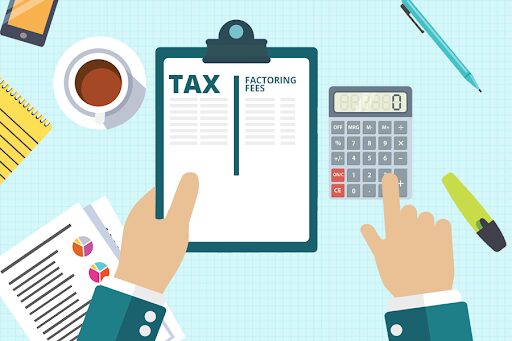It is possible to start a business by founding a new entity, buying an existing one, or starting a franchise business. Prerequisites are important for starting a new business, among which the most important is a quality idea, but also the initial capital.
When starting a business, there may be difficulties in financing, existing competition and the process of getting into business, and the time it takes to build your own market position. The purchase of an existing business avoids these risks and provides opportunities for profit. Visit ideaflight.com.
This is achieved if you buy a company that has no obsolete product or outstanding liabilities, or whose financial condition is good. Franchising involves a business relationship that includes licensing. In short, one company known as the franchisor sells the right to use the company name, brand, and product to another party known as the franchisor. If you are thinking about this, here are a few things you should keep in mind.
Types of franchises

The types of franchises are most often classified according to three criteria: according to the type of activity, the type of know-how that is transmitted to the recipients, and according to the way the franchise system is organized. A distributive franchise is a type of franchise in which the provider transfers to the franchisee business know-how in the form of goods and knowledge of how to sell it.
In other words, the distribution franchise is focused on the sale of goods supplied by the franchisor, in a facility arranged according to specifications and under a trademark or brand franchisor. A service franchise is a type of franchise in which the provider gives the franchisee their know-how in the form of their recipes and various procedures for performing services.
It’s a shape franchisee where the franchisee provides services using know-how, standards, protective mark, and other protected features of the franchisor. Service franchises are the most represented in catering and hospitality. A production franchise is a type of franchise in which the provider transfers its own to the franchisee know-how in the form of production technology and technical vocational review, respectively expert opinion.
The subject of the franchise agreement is the production of certain goods specifications and technology provided by the franchisor. A mixed franchise is a form derived from the above forms of franchise business, that is, it is a combination of production, distribution, and services.
It’s a mixed franchise a situation where the franchisor is a manufacturer and the recipient distributes products and deals by providing services related to their application. Eg. cosmetic companies establish a network of shops and beauty salons. Thus, in addition to distribution, the recipient also conducts service activities related to beauty care.
Your job remains the same

When we hear anything about franchises and franchise systems, our first association is usually fast food restaurants – the ones like McDonald’s or Subway. When you buy (receive, as it is commonly said in the industry) a franchise, you are actually still essentially doing business as before – at your own risk, with your own resources; but this time under someone else’s name – the franchisor’s brand.
Such a well-known brand is in fact only an additional guarantee for increased visibility and automatically increased number of customers, and thus a reduced possibility of business failure. That is, easier business success! Visit fundmydeductible.com to start a free trial of Fund My Deductible solution.
Deductible agreement
The franchise agreement is the foundation on which the relationship between the provider and the recipient is built franchising. Due to the growing number of companies from different sectors that enter the franchising system and the specific activities of each franchisor, is not possible to draw up a single franchise agreement that would be applicable to all situations in practice.
However, there are some issues that should be included in each contract, such as the rules of access to the franchise system, the duration of the contract, the rights and obligations of both parties, competition clause, training, license price, and marketing fees, the scope of work, protection of goods brands and labels, promotion and marketing, and so on.
With a deductible, you buy an already established business formula
This is one of the main reasons why businessmen decide to take this step – entering a tested, profitable and well-developed business system that has gone through many stages and developed, proved to be successful and repeatable. While this is not a guarantee of success, the risk is less than appearing on the market with a brand-new product.
Better financial and business opportunities

By entering the franchise system, that is, the already established system, you have a better opportunity to get a loan from a bank, because it is a guarantee for the bank of a safe and successful business.
Investments and costs

Starting a business in this way reduces the risk entrepreneurs. The content of an entrepreneurial project depends on the purpose, purpose, type of activity, technical and technological characteristics of the product, type and size of the investment, ie entrepreneurial venture.
The most difficult risk for entrepreneurs is related to funding. It must have all the characteristics that characterize modern entrepreneurial managers and relate to the ability to solve conflict and communication with employees, great energy, perseverance, endurance, ability to take risks and responsibilities, a sense of self-esteem, but also a sense of dominance.
Advantages and disadvantages of franchising
The benefits for the franchisee are numerous, and the most important are the use of training programs and consulting services, ongoing counseling and assistance, market recognition using a successful and well-known business image, the recipient is an independent businessman, ie retains relative business independence, requires less start-up capital due to facilities.
Products, use of market research results, lower risk of failure due to the fact that a standard product and a trademark are offered, assistance in choosing a location, arranging sales space, and purchasing equipment.
There are also shortcomings in the franchise business relationship, among which the most significant are in the franchisor that by giving a franchise one loses complete control over business units because every franchisee has control over its business unit, non-compliance with business procedures by the recipient, possible problems in relations with franchisees, revenue sharing between the provider and the recipient of the franchise, less revenue remains with the provider, but this is not a big drawback because of the larger number of recipients franchising also provides greater profitability, disadvantage trust that is contractually resolved, the emergence of potential competition because the expiration of the franchise agreement may pose a risk that the franchisee establishes its own competitive franchise.










